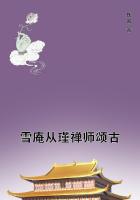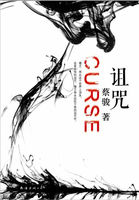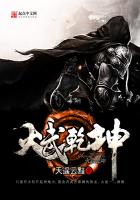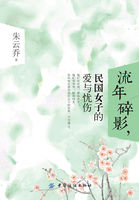Meanwhile they comfort mankind; goodness, piety, forgiveness flows from their lips with ineffable sweetness; with eyes upturned to heaven, they see God, and without effort, as in a dream, they ascend into the light and seat themselves at His right hand. How divine the legend, how inestimable in value, when, under the universal reign of brute force, to endure this life it was necessary to imagine another, and to render the second as visible to the spiritual eye as the first was to the physical eye. The clergy thus nourished men for more than twelve centuries, and in the grandeur of its recompense we can estimate the depth of their gratitude. Its popes, for two hundred years, were the dictators of Europe. It organized crusades, dethroned monarchs, and distributed kingdoms. Its bishops and abbots became here, sovereign princes, and there, veritable founders of dynasties.
It held in its grasp a third of the territory, one-half of the revenue, and two-thirds of the capital of Europe. Let us not believe that Man counterfeits gratitude, or that he gives without a valid motive; he is too selfish and too envious for that. Whatever may be the institution, ecclesiastic or secular, whatever may be the clergy, Buddhist or Christian, the contemporaries who observe it for forty generations are not bad judges. They surrender to it their will and their possessions, just in proportion to its services, and the excess of their devotion may measure the immensity of its benefaction.
II. Services and Recompenses of the Nobles.
Up to this point no aid is found against the power of the sword and the battle-ax except in persuasion and in patience. Those States which, imitating the old empire, attempted to rise up into compact organizations, and to interpose a barrier against constant invasion, obtained no hold on the shifting soil; after Charlemagne everything melts away. There are no more soldiers after the battle of Fontanet;during half a century bands of four or five hundred outlaws sweep over the country, killing, burning, and devastating with impunity. But, by way of compensation, the dissolution of the State raises up at this very time a military generation. Each petty chieftain has planted his feet firmly on the domain he occupies, or which he withholds; he no longer keeps it in trust, or for use, but as property, and an inheritance. It is his own manor, his own village, his own earldom; it no longer belongs to the king; he contends for it in his own right.
The benefactor, the conservator at this time is the man capable of fighting, of defending others, and such really is the character of the newly established class. The noble, in the language of the day, is the man of war, the soldier (miles), and it is he who lays the second foundation of modern society.
In the tenth century his extraction is of little consequence. He is oftentimes a Carlovingian count, a beneficiary of the king, the sturdy proprietor of one of the last of the Frank estates. In one place he is a martial bishop or a valiant abbot in another a converted pagan, a retired bandit, a prosperous adventurer, a rude huntsman, who long supported himself by the chase and on wild fruits.[9] The ancestors of Robert the Strong are unknown, and later the story runs that the Capets are descended from a Parisian butcher. In any event the noble of that epoch is the brave, the powerful man, expert in the use of arms, who, at the head of a troop, instead of flying or paying ransom, offers his breast, stands firm, and protects a patch of the soil with his sword. To perform this service he has no need of ancestors; all that he requires is courage, for he is himself an ancestor; security for the present, which he insures, is too acceptable to permit any quibbling about his title.-Finally, after so many centuries, we find each district possessing its armed men, a settled body of troops capable of resisting nomadic invasion; the community is no longer a prey to strangers. At the end of a century this Europe, which had been sacked by the Vikings, is to throw 200,000 armed men into Asia.
Henceforth, both north and south, in the face of Moslems and of pagans, instead of being conquered it is to conquer. For the second time an ideal figure becomes apparent after that of the saint,[10]















